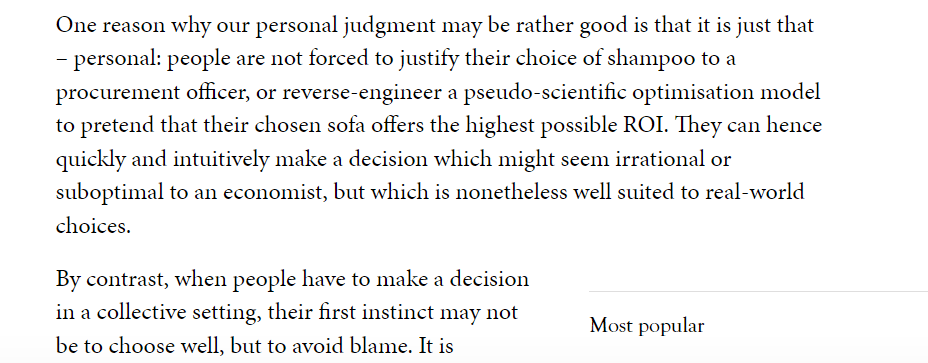Sublime
An inspiration engine for ideas
In The Paradox of Choice, the psychologist Barry Schwartz argues that infinite choice – whether of mutual funds, breakfast cereals or lovers – is exhausting to the human psyche and leads to greater dissatisfaction. When presented with too many choices, we are not only stunned, like a kid in the proverbial candy shop, but also less satisfied with th
... See moreMia Levitin • The Future of Seduction

“The Paradox of Choice,” Barry Schwartz used numerous examples, from shopping to career options to romance, to show that less choice can not only increase our productivity,
Sönke Ahrens • How to Take Smart Notes: One Simple Technique to Boost Writing, Learning and Thinking
American psychologist, Barry Schwartz wrote “The Paradox of Choice” almost a decade ago. In this book he analyses the behavior of different types of people, ones he calls maximisers and satisfiers facing abundance of choice. He also makes a point that demonstrates how the exponential explosion in choice has paradoxically become a problem instead of... See more
Andrea Hernandez • Curation as Salvation
As psychologist Barry Schwartz puts it: “Learning to choose is hard. Learning to choose well is harder. And learning to choose well in a world of unlimited possibilities is harder still, perhaps too hard.”
Anne-Laure Le Cunff • The Affliction of Abundance: FOBO or the Fear of a Better Option
But there’s a huge danger here. We are covetous creatures, and grasping at too many things leaves us feeling stressed and inadequate, and constantly wondering whether we’re on the best path. Psychologist Barry Schwartz tells us that a wealth of options has a way of making us less satisfied with our eventual choice. When there are fifty possibilitie... See more
David Cain • Why There’s Never Enough Time
Barry Schwartz, a Swarthmore psychology professor and the author of The Paradox of Choice—argue
Rob Walker • The Art of Noticing: 131 Ways to Spark Creativity, Find Inspiration, and Discover Joy in the Everyday
Poor Charlie’s Almanack: The Essential Wit and Wisdom of Charles T. Munger
Warren Buffett • 1 highlight
amazon.com

Rory Sutherland on why group decision making is often worse than personal judgement https://t.co/Gj6CRLLF40